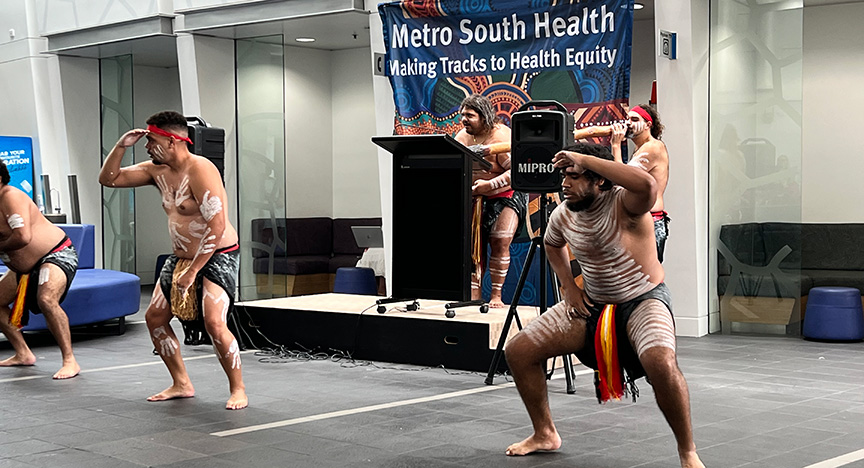
PA Hospital hosted a public event this week to acknowledge Aboriginal and Torres Strait Islander culture and reflect on the hospital’s ongoing commitment to health equity for Aboriginal and Torres Strait Islander people.
The Welcome to Country, traditional dances and information stalls in the foyer brought welcome attention to the overarching message of Close the Gap.
Executive Director of PA Hospital, Dr Jeremy Wellwood, reinforced the challenge to make PA Hospital a culturally inclusive and safe organisation that showcases a greater understanding of Aboriginal and Torres Strait Islander culture and how we can best address the needs of consumers in our care.
“We are blessed at PAH to have such great Aboriginal and Torres Strait Islander staff who work tirelessly to create a culturally safe place for the community to come for the care they need. But to measurably improve health equity to Close the Gap, we know that there is much more to do.
“It will take everybody here at the PAH to help our Aboriginal and Torres Strait Islander consumers feel culturally safe, to address their barriers to care, and to ensure continuity after they leave our care,” he said.
A tangible approach currently underway at PA in the Division of Surgery is accelerated access to surgery for Aboriginal and Torres Strait Islander patients who are 10 per cent more likely to wait longer than recommended for elective surgery according to the data.
“Those that identify as Aboriginal or Torres Strait Islander will be scheduled to ensure they are treated in time. We will progress similar process in outpatients and endoscopy in our quest to Close the Gap,” Dr Wellwood said.
PA Hospital has approximately four per cent of elective surgery patients who identify as Aboriginal or Torres Strait Islander, but the real opportunity for measurable change will be advancing care for the additional four per cent who ‘prefer not to say’ whether they identify.
“Collectively, we need find ways to improve the identification of Aboriginal and Torres Strait Islanders in the hospital system and also to reflect as a community on why it might be that an Aboriginal and Torres Strait Islander prefers not to identify.”
The Metro South Health First Nations Health Equity Strategy addresses the need to redesign the health service to ensure more First Nations people are employed across the system, it listens to First Nations voices, and supports a better integrated and coordinated system for Aboriginal and Torres Strait Islander peoples. The aim is to ensure our services are equitable for all people.